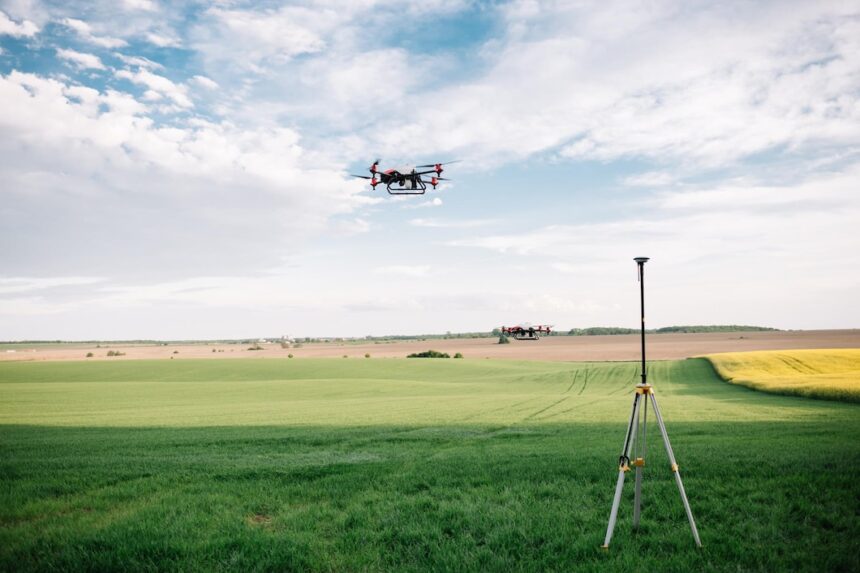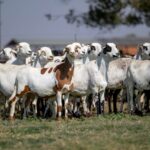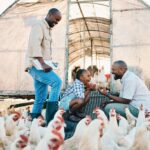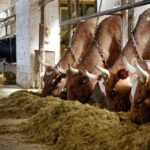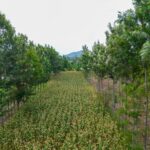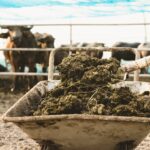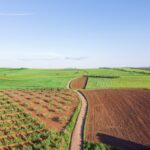In recent years, drones have revolutionized agriculture worldwide, and South African small-scale farmers are beginning to reap the benefits. Using drones for farm monitoring offers a high-tech, cost-effective way to improve crop health, manage resources, and increase yields without needing expensive equipment or extensive manpower.
Drones—also called unmanned aerial vehicles (UAVs)—are equipped with cameras and sensors that capture detailed images and data from above. This bird’s-eye view can help you monitor crop health by detecting signs of stress, disease, or pest infestations early through multispectral imaging. They also help assess irrigation by identifying dry spots or leaks in your system, map your farm accurately for better planning, track livestock without constant patrolling, and save time and costs by reducing manual labor and increasing efficiency.
Before buying a drone, it’s important to assess your farm’s needs. Are you focused on crop monitoring, livestock management, or mapping your land? Different drones come with varied features like thermal cameras for water stress detection or high-resolution RGB cameras for crop scouting. For small farms, lightweight and affordable drones with good battery life and decent camera quality work best. Brands like DJI offer models such as the DJI Mini 3 Pro or DJI Air 2S that balance price and performance well.
It is crucial to understand the legal requirements for drone use in South Africa. The Civil Aviation Authority (SACAA) regulates drone operation, and for commercial or agricultural use, you may need a Remote Pilot License and approval from SACAA. Staying compliant helps you avoid penalties and ensures safe operation by adhering to flight altitude limits, no-fly zones, and privacy laws.
Operating a drone safely and effectively requires some training. Enrolling in a local drone piloting course or workshop is highly recommended. Learning to fly manually and using drone software for mapping or analytics will help you maximize your investment. Collecting images is just the first step—specialized farm management software can process drone data to provide actionable insights. Tools like Pix4Dfields or DroneDeploy convert aerial images into vegetation indices (NDVI) that highlight stressed areas needing attention.
Scheduling regular drone flights—weekly or biweekly during critical growing seasons—allows you to track crop progress and spot problems early. Consistent monitoring supports timely interventions, reducing losses and improving yields. Drones are a powerful addition but work best alongside soil testing, manual scouting, and traditional irrigation management. Using drone data to guide field visits rather than replacing them completely offers the best results.
For South African small farmers, the benefits are clear. Early problem detection saves crops by identifying pest outbreaks or diseases before they spread. Efficient water use means irrigation targets only where needed, conserving water amid drought conditions. Accurate maps support better decisions on planting, harvesting, and field rotations. Improved livestock oversight helps monitor animals remotely to prevent losses and reduce theft. Ultimately, drones can increase profitability by reducing input waste and improving yields.
However, there are challenges to consider. Initial costs can be a barrier, although prices are dropping. Analyzing data requires some technical skills, and battery life limits flight time—larger farms may require multiple flights. Weather conditions like strong winds can also affect drone operations.
Drones are becoming an essential tool for modern agriculture in South Africa, even on smaller farms. By investing in the right technology, training, and software, you can gain valuable insights into your crops and livestock, reduce waste, and increase productivity. Whether you grow maize, vegetables, or raise livestock, drones can help you manage your farm smarter, saving time and money while protecting your livelihood. Start small, learn as you go, and watch your farm soar to new heights with drone technology.
If you’re ready to explore drone farming, check out local suppliers and training programs to get started today!
Join 'Farmers Mag' WhatsApp Channel
Get the latest Farming news and tips delivered straight to your WhatsApp
CLICK HERE TO JOIN
